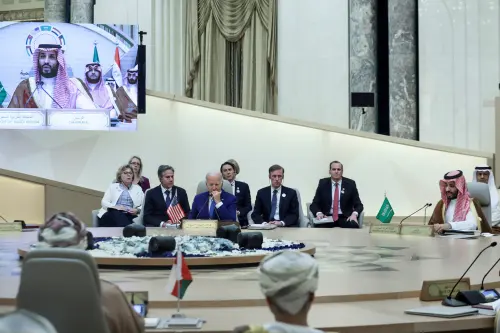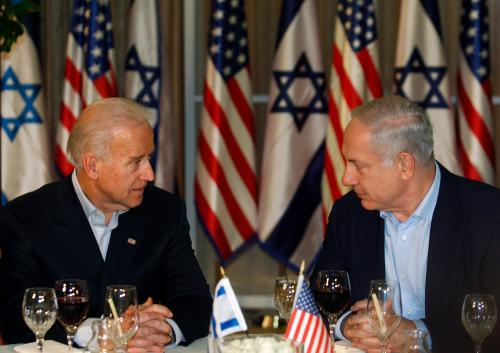Content from the Brookings Doha Center is now archived. In September 2021, after 14 years of impactful partnership, Brookings and the Brookings Doha Center announced that they were ending their affiliation. The Brookings Doha Center is now the Middle East Council on Global Affairs, a separate public policy institution based in Qatar.
Saudi Arabia kicks off anti-corruption campaign
Mazen al-Khamous, the newly appointed head of Saudi Arabia’s anti-corruption commission, announced his plans to go after ordinary government employees in the Kingdom’s anti-corruption campaign. Al-Khamous’ plan is to end bureaucratic corruption and to meet monthly with Crown Prince Mohammed bin Salman to discuss his progress. The Crown Prince defended this anti-corruption campaign, referring to it as “shock therapy.”
Bahrain tells all citizens to leave Lebanon
Bahrain’s foreign ministry told its citizens to leave Lebanon due to security concerns, following a week of rising tensions between Lebanon’s Hezbollah and Israel. Bahrain had previously told citizens not to travel to Lebanon.
Saudi-led coalition dismisses UN report on Yemen
The Saudi-led coalition fighting in Yemen dismissed a UN report that called for banning arms transfers to the conflict parties, calling the report subjective and biased. The report accused the United States, the United Kingdom, and France of being complicit in war crimes because they have armed and provided intelligence and logistics support to the Saudi-led coalition. It also said that the coalition had purposefully starved civilians in Yemen.
Drone attacks hit Aramco plants, disrupt Saudi oil production
Yemen’s Iran-aligned Houthis conducted drone attacks on two Aramco plants in Saudi 2Arabia, disrupting the country’s oil production and exports. One source claimed that the attacks had affected five million barrels per day of production, amounting to nearly half of the country’s oil output. Though the Houthis took responsibility for the attack, the U.S. administration blamed Iran, which Iran denied. Saudi Arabia was able to restore its oil production capacity to 11.3 million barrels per day, according to various sources, in a faster-than-expected recovery.
Khashoggi murder ‘happened under my watch,’ Saudi crown prince tells PBS
The Crown Prince of Saudi Arabia, Mohammed Bin Salman, said that the murder of journalist Jamal Khashoggi “happened under… [his] watch,” according to a PBS documentary. This was the first time that the Crown Prince publicly acknowledged personal responsibility for the death of the journalist, which took place inside the Saudi consulate in Istanbul.
Qatar says will welcome World Cup fans from blockading countries
Qatar will not bar fans from Saudi Arabia, the United Arab Emirates, Bahrain, and Egypt from attending the 2022 World Cup, according to the head of the organizing committee. The country also announced that it will make alcohol accessible to visiting fans, and will utilize cruise ships to accommodate visitors, who are expected to number close to one million individuals.
The Brookings Institution is committed to quality, independence, and impact.
We are supported by a diverse array of funders. In line with our values and policies, each Brookings publication represents the sole views of its author(s).


Commentary
GCC News Roundup: Saudi oil fields attacked, Qatar welcome fans from blockading countries (September 1-30)
October 6, 2019